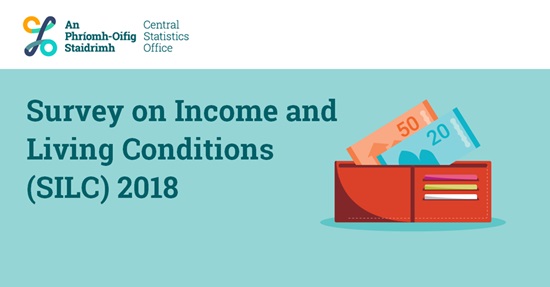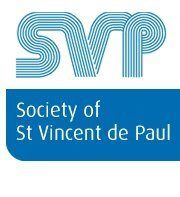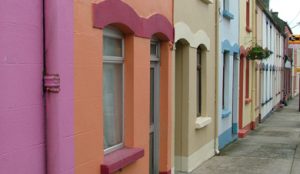
By Ann Marie Foley - 04 December, 2019
 Approximately 220,000 more people experienced deprivation in 2018 than before the economic crash ten years ago. The Society of St Vincent de Paul (SVP) made this assertion as it goes into the winter period, when it will receive more than 50,000 calls from families struggling to afford the basics.
Approximately 220,000 more people experienced deprivation in 2018 than before the economic crash ten years ago. The Society of St Vincent de Paul (SVP) made this assertion as it goes into the winter period, when it will receive more than 50,000 calls from families struggling to afford the basics.
“For a rich country like Ireland, it is unacceptable that so many people are going without basics,” said Kieran Stafford, National President, SVP. He said that in the lead-up to Christmas SVP regional offices took over 5,000 calls over one week from families struggling to heat their homes and put food on the table.
“For many families one of the biggest drivers of poverty is housing costs,” he said.
Responding to SILC (Survey on Income and Living Conditions) figures published by the CSO (Central Statistics Office), the SVP welcomed what the report called a “statistically significant” reduction in the rate of enforced deprivation, which means an inability to afford basics like sufficient heating and nutritious food. However, the SVP warned that the Irish government has no strategy in place to combat poverty.
“[These] figures illustrate that in the absence of a national strategy to tackle poverty, progress on poverty reduction has unfortunately slowed. We need an integrated plan, with supporting actions across government focused on improving income support and increasing the provision of affordable and social housing, good quality childcare, universal healthcare, and accessible education”, said the SVP Head of Social Justice, Dr Tricia Keilthy.
The SVP welcomed the fall in consistent poverty from 6.7 per cent in 2017 to 5.6 per cent, which the  report stated was not statistically significant.
report stated was not statistically significant.
The charity stated that the last national strategy to combat poverty ended in 2017 and a new strategy was to come into force this year but has been delayed.
The SVP highlighted that SILC does not include information on poverty rates among those in most financial difficulty, including people living in emergency accommodation, direct provision centres, and members of the Travelling community.
The figures showed an increase in the rate of consistent poverty among those living in the private rented sector from 10.6 per cent to 11.2 per cent in 2018. However, unlike in the UK, the measure of poverty used in Ireland does not account for housing costs, so the real difficulties faced by low income households living in private rented accommodation are likely to be underestimated in the figures.
SILC in Ireland is a household survey covering income and living conditions for households and  individuals. It quantifies at risk of poverty rate, consistent poverty rate and rates of enforced deprivation. This report presents the results for 2018 and comparable data for previous years.
individuals. It quantifies at risk of poverty rate, consistent poverty rate and rates of enforced deprivation. This report presents the results for 2018 and comparable data for previous years.
The main findings show that in 2018:
– The nominal median annual equivalised disposable income was €22,872, representing an increase of 9.6 per cent on the nominal 2017 value of €20,869. The real figure for median annual equivalised disposable income was €22,508, an increase of 9.2 per cent on the previous year’s figure. It states that these changes are statistically significant.
– The at risk of poverty rate was 14.0 per cent compared with 15.7 per cent in 2017, which is not statistically significant.
– Enforced deprivation was experienced by 15.1 per cent of the population, down from 18.8 per cent in 2017, which is statistically significant.
– The deprivation rate for those at risk of poverty was 40.3 per cent in 2018, down from 42.8 per cent in 2017.
– The consistent poverty rate was 5.6 per cent. This is not a statistically significant change on the 2017 figure of 6.7 per cent.